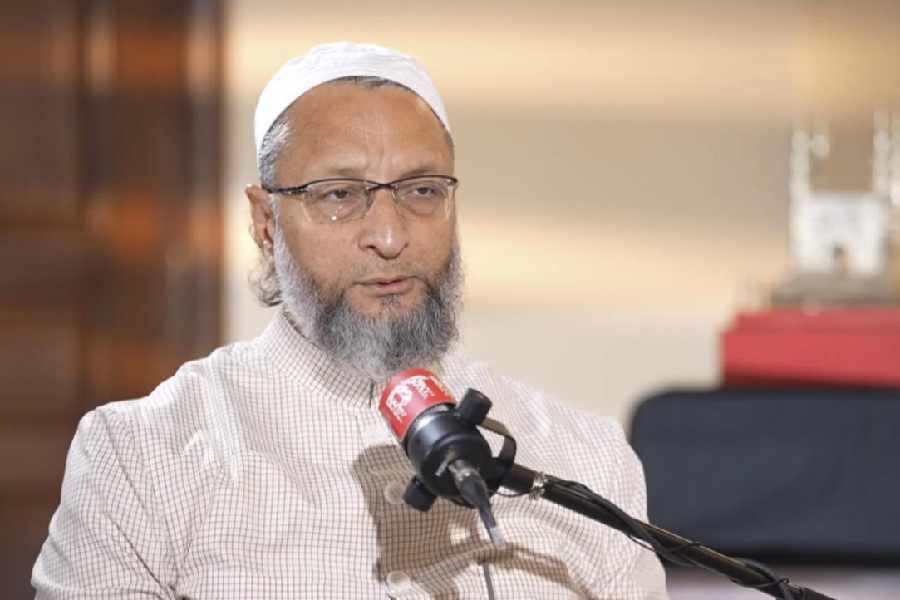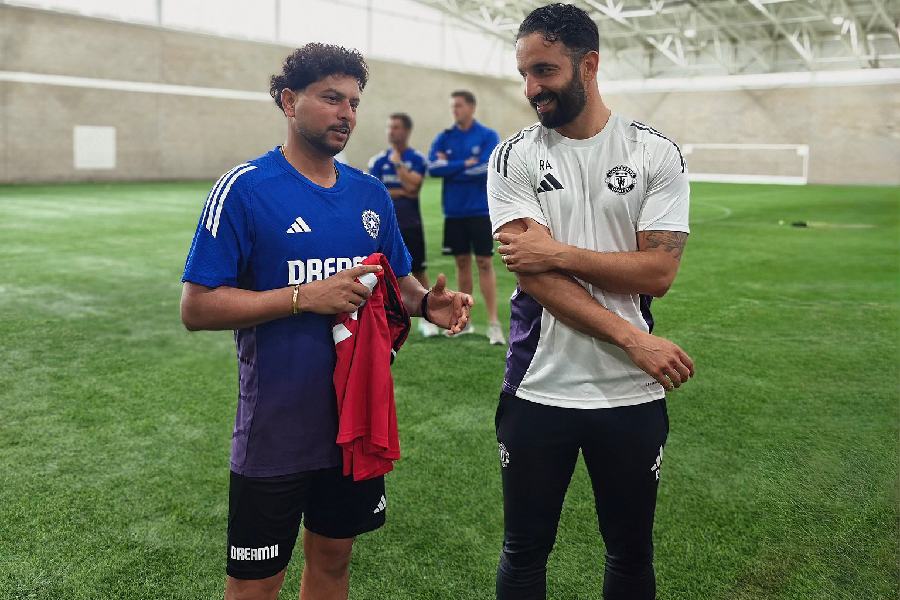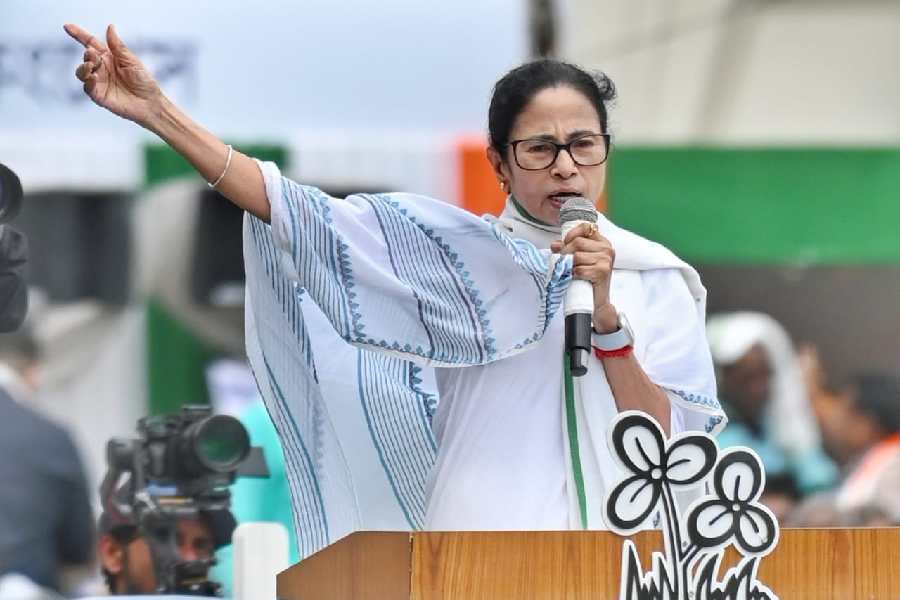 |
| Children participate in a Bihu workshop on Sunday. Picture by UB Photos |
March 25: Clad in a dhoti, muga shirt and a gamosa tied around his forehead, four-year-old Barnenyam Dutta was tapping his little feet to the beats of the dhol, tal and pepa. Minutes later, it was five-year-old Atreyi Sahari’s turn, who, along with another group of little girls, swayed to the tunes of a Bihu geet.
Barnenyam and Atreyi were among the 320 children who took part in the 12-day Bihu dance workshop that concluded this evening at Shraddhanjali Kanan. The workshop was organised by popular dancer Ranjit Gogoi ahead of Assam’s spring festival, Rongali Bihu.
“The response from the children has been overwhelming. Even children from non-Assamese communities came forward to learn Bihu, which was a welcome change. Though 12 days is not enough to master the nuances of any folk dance, I think such workshops help children learn the basics,” Gogoi said.
For those who missed the workshop, there is another one coming up at Srimanta Sankaradeva Kalakshetra from April 1.
At the seven-day upcoming workshop, children can learn a lot about the folk dances of various communities of Assam — Bihu, Deuri Bihu, boixagu, domahi kikan, boroto, kuxan, jhumur, apart from picking up more dancing skills. The Kalakshetra is organising such a workshop involving multiple folk dances and songs on a single platform for the first time.
The workshop will also provide an opportunity for all to learn different genres of folk songs, including bongeet, Bihu naam, Kamrupi geet, Goalporiya lokogeet, oinitom, deh bisaror geet (devotional songs).
“In addition to the Assamese Bihu dance, we have, for the first time, introduced Bihu dance forms of different communities such as Bodo, Tiwa and Karbi. We have involved experts to conduct the workshops. Participants should be in the age group of 16 to 25 years. The idea is to popularise folk songs and dances of other communities and not to remain confined only to Bihu,” said Babul Deka, an organiser of the workshop at Kalakashetra.
Nandiram Deuri, who will be teaching boroto, a Tiwa folk dance, at the workshop said: “If such workshops are not organised, the popularity of the dance forms will remain confined to us. I teach the dance form in Morigaon and Jagiroad and to take the art form out of such boundaries. We need to take such initiatives. I feel though a few days are not adequate, the participants can approach us any time even after the workshop to learn it in a more refined way.”
A similar workshop is also under way at Shilpgram.











